[ad_1]
? Pros and Cons of a Septic Tank
For many American homeowners, the septic tank is the backbone of their waste disposal system – a personal wastewater treatment plant nestled right in their backyard.
Though it might not be the most glamorous topic, it’s important.
Having a functioning waste disposal system can be the difference between comfortable living and one of the most disgusting situations imaginable.
In this article, we’ll explore the pros and cons of septic tanks and help you find whether they’re a good idea for your household.
So, are septic tanks the unsung heroes of home sanitation, or just a murky mess waiting to happen? Let’s investigate!
? What Is A Septic Tank?
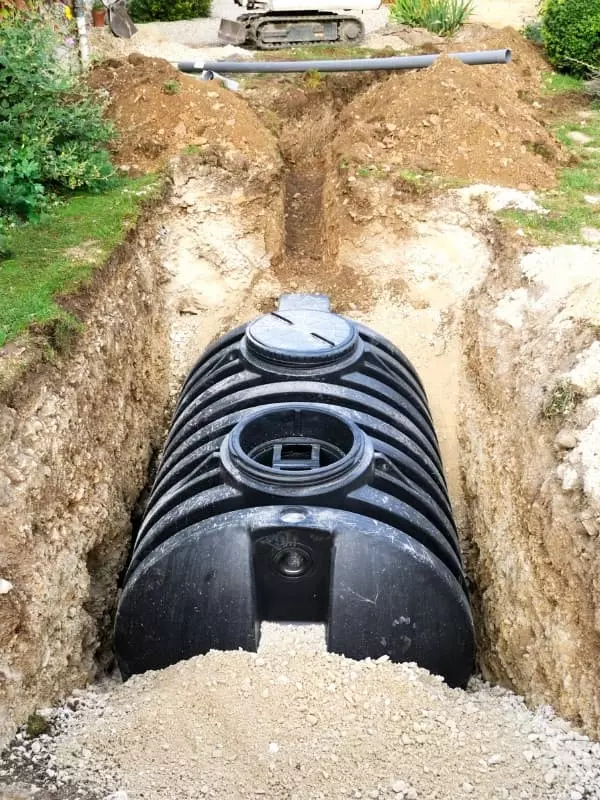
In layman’s terms, a septic tank system is a self-contained, underground wastewater treatment system.
They’re common in rural areas where connecting to a municipal sewer system is either not an option or an overly burdensome task.
Septic systems follow a simple yet efficient process. The wastewater and sewage from your home enter the septic tank, where the solids are separated from the liquids.
The solids sink to the bottom and undergo a bacterial breakdown while the liquids slowly disperse into the drain field.
? How Prevalent Are Septic Tanks?
In the United States, it’s estimated that 1 in 5 homes rely on septic systems for waste disposal.
They’re common in rural and suburban areas, where municipal sewer systems don’t extend.
This means millions of American homeowners regularly interact with these systems and need to understand their operations and maintenance needs.
Despite the prevalence, many homeowners are not fully aware of the pros and cons of a septic tank, which often leads to unnecessary issues and expenses.
? Related Reading: Does Every House Have a Septic Tank? Here’s What You Need to Know
Let’s dive into the advantages and disadvantages of septic tank systems.
? Pros Of Septic Systems
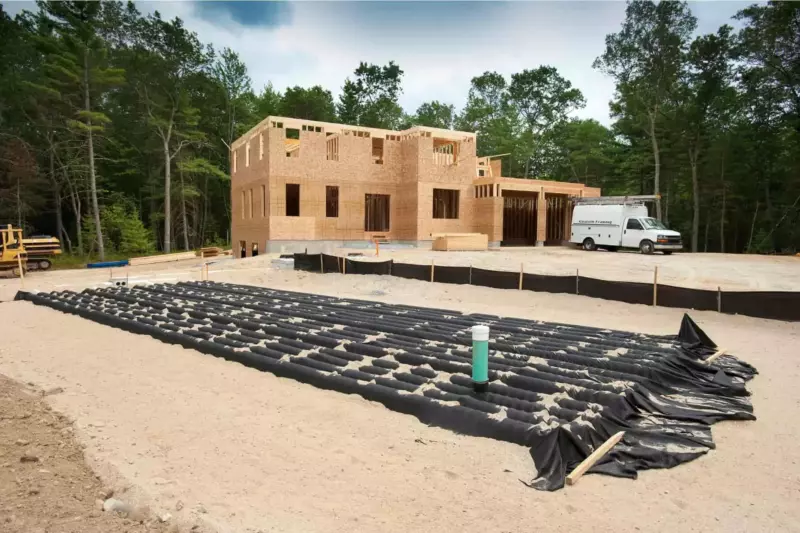
✔️ Help You Save Money
Septic systems can be a cost-effective solution for waste management in the long run.
Unlike municipal sewer and drainage systems, which require regular payment for services, septic systems only require an upfront investment and periodic maintenance costs.
This means that once your system is installed, you’ll no longer have to pay these bills!
Furthermore, because you’re treating your waste on-site, you’re not dependent on city infrastructure and its associated fees.
Of course, the savings depend largely on the size of your household and your water usage habits, but for many homeowners, buying a house with a septic system can be a financially savvy choice.
✔️ Environmentally Friendly
Septic systems are also considered environmentally friendly due to their low-impact design.
The wastewater is treated and released right on your property, minimizing the need for energy-intensive transportation and large-scale treatment facilities.
Moreover, the treated water reenters the local ground and surface water ecosystems, often providing a beneficial hydration source for nearby plants.
However, ensuring proper maintenance is important, as failing systems can lead to environmental contamination.
The released water is adequately treated in a properly maintained and functioning septic system, reducing the risk of polluting local water sources.
✔️ Good For Rural Areas
Septic systems offer a practical solution for homeowners in rural areas where access to municipal sewer lines may be limited.
They facilitate localized waste management, eliminating the need for a long municipal sewer line from the home to the city system.
This feature is particularly relevant in regions where houses are widely dispersed and connected to city sewers would be logistically difficult or prohibitively expensive. In such cases, septic tanks provide an effective and convenient means of managing wastewater.
✔️ Last For A Long Time
With proper maintenance, septic systems can serve your household for several decades.
High-quality, well-installed septic tanks can last between 20 to 40 years before requiring a replacement, offering a long-term solution for waste management.
This durability further enhances their cost-effectiveness, as the upfront investment can be spread over many years.
However, the lifespan of a septic system largely depends on how well it’s cared for.
Regular inspections and pump-outs, along with mindful water use, can significantly extend the life of your own septic system and prevent costly repairs.
? Cons Of Septic Systems
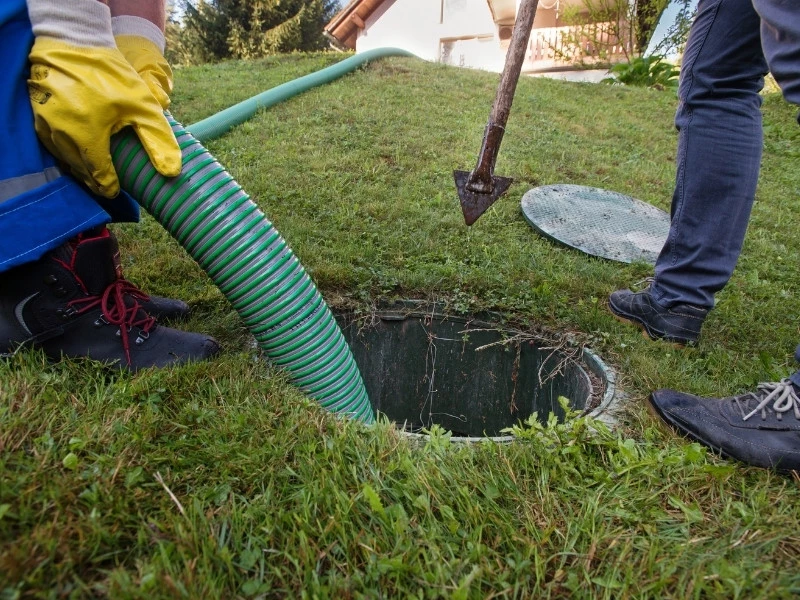
❌ Require Routine Maintenance
Unlike city sewer systems, septic systems require regular maintenance to keep them running smoothly and efficiently.
This involves periodic inspections for things like tree roots which could undermine the septic tank’s integrity, typically every 3-5 years, and pump-outs to remove the accumulated solids in the tank.
This maintenance can add up in terms of time and money, and failure to keep up with it can lead to major issues, such as system failures or environmental contamination, which can be costly to address.
❌ Not As Flexible As Other Systems
Septic systems have certain limitations when it comes to what can be flushed; they’re not as forgiving as municipal sewer systems.
In most septic tanks, only human waste and toilet paper should be disposed of.
Flushing items such as wipes (even those labeled as ‘flushable‘), feminine hygiene products, diapers, or even excessive amounts of toilet paper can disrupt the bacterial breakdown process and cause blockages.
Similarly, pouring chemicals, oils, or grease down the drains can harm the beneficial bacteria in the tank and contaminate the soil and groundwater.
These restrictions necessitate more careful garbage disposal practices when using a septic system, which some homeowners see as a disadvantage.
Depending on your location, the process of getting a septic tank installed can involve jumping through a few administrative hoops.
Some jurisdictions require additional permits and inspections for septic system installation, which could cost extra time and money.
You may have to pay for soil and site evaluations, permits, and potentially even system designs by engineers.
This can add to the upfront cost and complexity of installing a septic system compared to simply hooking into an existing city sewer line.
This is often seen as a disadvantage of owning a septic system, as the process can be quite lengthy and bureaucratic.
? How To Get The Most Of Out A Septic Tank System
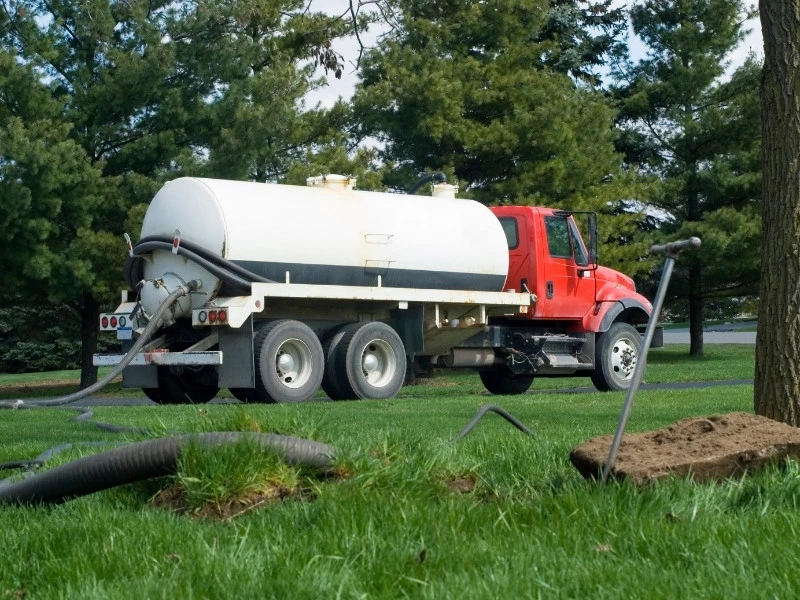
? Getting The Right System For You
When choosing a septic system for your home, it’s crucial to consider factors beyond just the initial cost.
To start with, assess the size of your household and the amount of wastewater you generate daily.
This will guide you in selecting an appropriately sized tank.
Then, consider the type of soil in your area and the proximity to water bodies, as these factors influence the kind of drain field your sewer system will require.
You may want to consult with a local expert or a septic system company who can provide invaluable guidance based on your specific circumstances.
In addition, remember to check local laws and regulations that might dictate the kind of system you can install.
Lastly, think about long-term maintenance needs and costs—be sure to choose a system that you’re capable of maintaining properly to avoid potential issues down the line.
? Septic Tank Inspection
When it comes to getting a septic tank inspected for the first time, or if you’re moving into a new house with a septic system, it’s crucial to tap into the expertise of a professional septic system service company.
They have the necessary knowledge, tools, and skills to perform a thorough inspection and provide a comprehensive report on the system’s condition.
This should include the tank’s structural integrity, the efficiency of the drain field, and the levels of sludge and scum.
If you’re planning a home purchase, a septic inspection should be part of your house evaluation process.
It’s important to request a copy of the latest inspection report from the current homeowner or realtor and, if not available, arrange for an inspection before finalizing the purchase.
This way, you can avoid any unpleasant, costly surprises down the line. Remember, a well-maintained septic system is key to a happy home!
? Septic System Maintenance
Regularly maintaining your septic system is a smart move for many reasons.
Firstly, early detection of potential issues through routine inspections can prevent minor problems from escalating into major, costly repairs or even system failures.
Secondly, by regularly pumping out and cleaning your septic tank, you ensure the effective breakdown and treatment of waste, thereby avoiding unpleasant backups or even pollution of local groundwater.
Lastly, consistent maintenance can significantly extend the life of your system, allowing you to defer the considerable cost of replacing your septic tank.
Remember, an ounce of prevention is worth a pound of cure, particularly when it comes to your septic system.
? Related Reading: Sewer Cleanout: What it Is and Why it Matters
? Getting A Septic Tank System Replaced
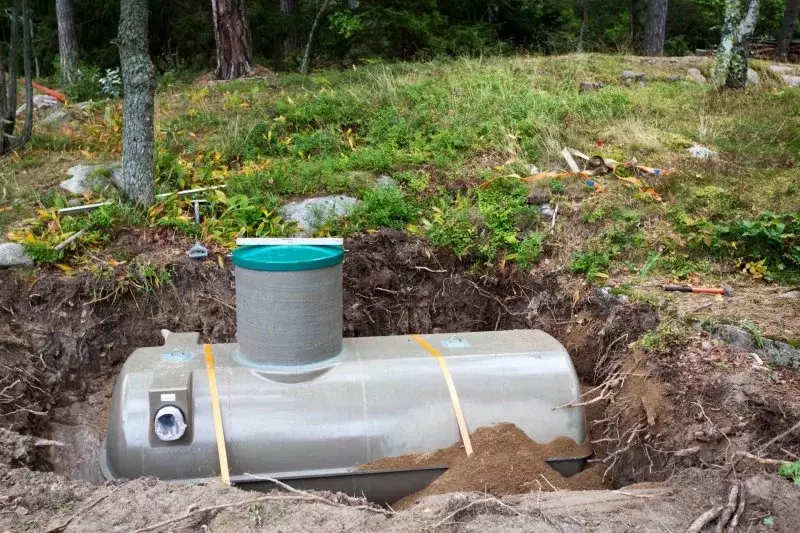
When it’s time to replace your septic tank system, the first step is to consult with a professional septic system service company.
They’ll conduct an inspection to confirm the need for a replacement and provide a project estimate.
Upon approval, they will acquire all necessary permits and make arrangements to remove your old system safely.
The installation of the new system often involves site preparation, including excavation and then the positioning and connection of the new tank.
It’s important to expect some disruption to your property during this process, as heavy machinery may be required.
Once installed, the system will be tested to ensure it’s working properly.
After successful testing, the excavation site will be backfilled, and your landscape returned as close to its original state as possible.
Remember to request a detailed guide on the care and maintenance of your new system from your service provider to ensure its longevity.
? Getting A Septic Tank System Removed
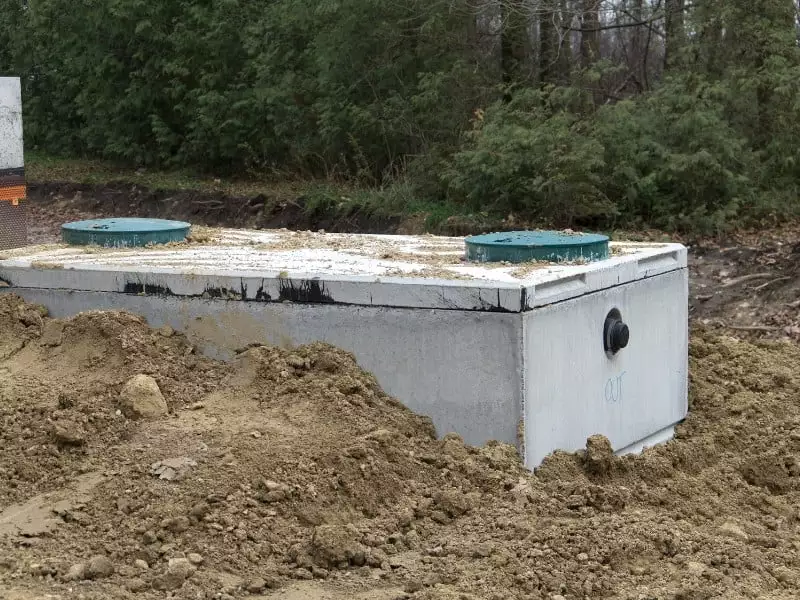
If you decide to have your septic system removed, be prepared for a process that involves strict procedures and regulations.
? Septic tank removal is not a DIY task and must be performed by a licensed professional to ensure compliance with local and state regulations.
The professional will pump and clean your septic tank first, then excavate it from the ground.
The tank is usually crushed and filled with dirt or removed completely if it’s made of fiberglass or plastic. The hole is then filled in to restore the landscape.
The cost of removal can vary significantly depending on the size and location of your tank and the local disposal fees.
Remember, this process may require a permit, so always check with local authorities before proceeding.
? Final Thoughts

While not without their challenges, septic systems offer a viable and cost-effective wastewater solution for homeowners who are out of reach of municipal sewer lines or prefer a self-reliant sewage system.
Yes, they demand responsible usage, regular maintenance, and compliance with local regulations, but the benefits of independence, longevity, and sustainability they provide stand out.
If you’re a homeowner in the United States or Canada needing professional help with your septic system, whether, for routine maintenance, an in-depth inspection, or even system removal, Phyxter Home Services is here to assist you.
Utilize our expertise to ensure your septic system remains a reliable asset rather than a liability.
Have any other burning questions? Check out the rest of our range of plumbing articles.
[ad_2]
Source_link


